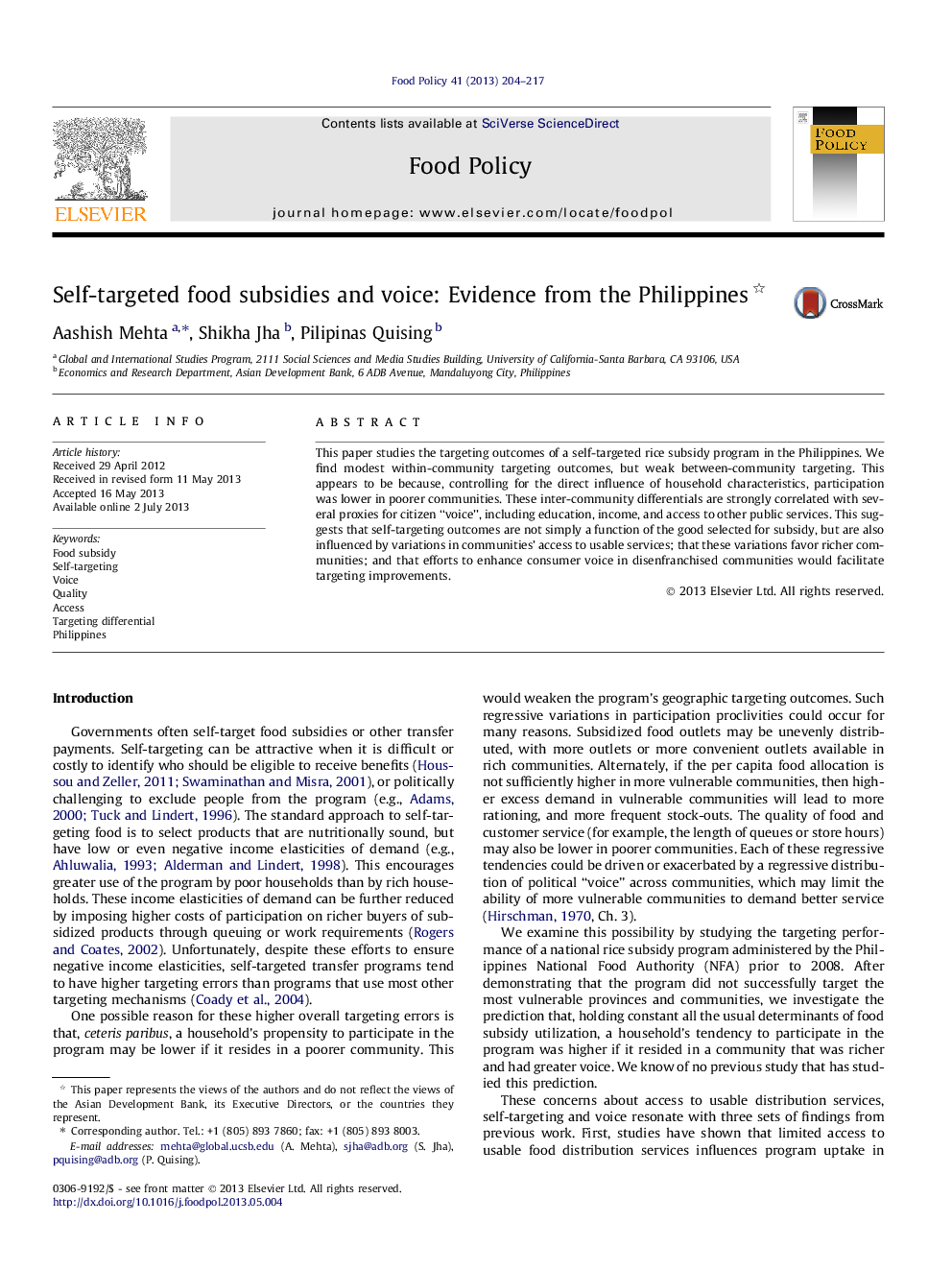| Article ID | Journal | Published Year | Pages | File Type |
|---|---|---|---|---|
| 5070654 | Food Policy | 2013 | 14 Pages |
Abstract
This paper studies the targeting outcomes of a self-targeted rice subsidy program in the Philippines. We find modest within-community targeting outcomes, but weak between-community targeting. This appears to be because, controlling for the direct influence of household characteristics, participation was lower in poorer communities. These inter-community differentials are strongly correlated with several proxies for citizen “voice”, including education, income, and access to other public services. This suggests that self-targeting outcomes are not simply a function of the good selected for subsidy, but are also influenced by variations in communities' access to usable services; that these variations favor richer communities; and that efforts to enhance consumer voice in disenfranchised communities would facilitate targeting improvements.
Related Topics
Life Sciences
Agricultural and Biological Sciences
Food Science
Authors
Aashish Mehta, Shikha Jha, Pilipinas Quising,
